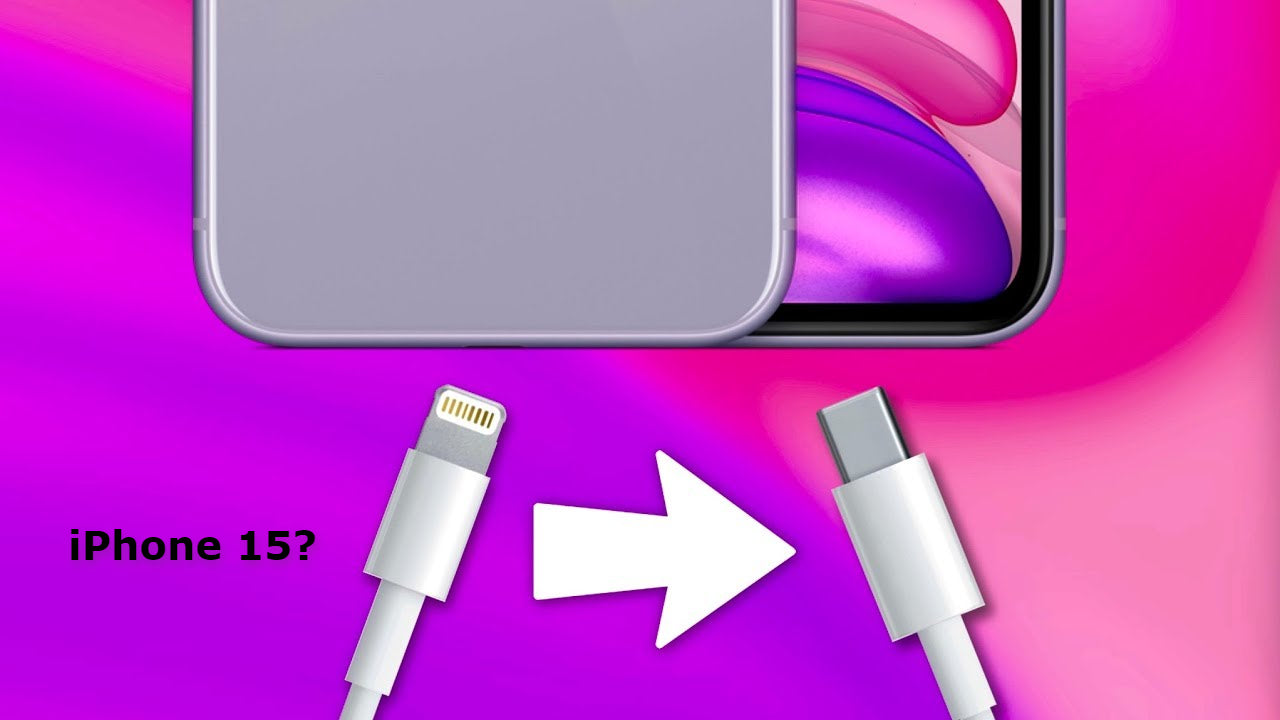The iPhone 15 could finally be equipped with USB-C

Speculation has been circulating for years about whether or when Apple will switch iPhones from Lightning to USB-C. While popular opinion tends to think it will never happen, reliable sources say it could appear in next year's "iPhone 15."
RELIABLE INFO OR PROPAGANDA?
We already have solid information that this year's iPhones won't switch to USB-C, but with the EU under increasing pressure to require all electronics to switch to a universal charging standard, Apple may not have a choice.
We always thought Apple would remove all ports before moving to USB-C. That would certainly meet the EU requirements. This would certainly meet EU requirements, as switching to wireless charging instead of ports would be great, but the timing might not be on Apple's side.
While MagSafe technology has a lot of potential and is undoubtedly Apple's future plan, it's fair to say that the world is not ready for a portless iPhone.
WIRELESS CHARGING
After all, while Apple already covers wireless charging, this is only part of it. The biggest obstacle to removing all ports remains CarPlay. While wireless CarPlay systems have gained popularity in recent years, they're still far from widespread. The problem isn't that automakers are holding back, it's that Bluetooth isn't fast enough to support CarPlay, and vehicles need built-in Wi-Fi. However, Wi-Fi is still not included as standard equipment in most vehicles.
Apple has several ways to solve this problem, but most of them are rather cumbersome and not very consumer-friendly. For example, creating a MagSafe CarPlay adapter or a Wi-Fi CarPlay adapter would require customers to purchase additional accessories for traditionally standard features.
While Apple isn't afraid to remove ports when it's convenient, it tends to take a somewhat cautious approach. Around the time Apple released the first AirPods, the iPhone 7's 3.5mm port was removed and wireless headphones were already gaining popularity. Apple also designed a 3.5mm to Lightning adapter that is cheap enough that Apple can include one in every box to solve users' problems.
Wireless CarPlay has yet to reach the same level of use. Giving away a free MagSafe adapter to CarPlay with every iPhone could hurt Apple's bottom line even more than giving up the royalties it collects from iPhone accessory manufacturing partners that use the Lightning port.
However, new European regulations will force Apple to take action. It's going to have to get rid of the Lightning port one way or another, whether it's using MagSafe or USB-C. Apple may not be forced to make changes until 2024, but the release of the iPhone 15 next fall will bring it dangerously close to that deadline.
So with all that in mind, it's worth taking veteran analyst Ming-Chi Kou's latest revelation more seriously. According to Kuo, the 2023 iPhones will ditch the Lightning port and switch to USB-C.
This should also improve transfer and charging speeds, Kuo noted, but it's worth noting that these improvements don't require a switch to USB-C. The iPhone 13 Pro Max can already charge up to 27W via the Lightning port, and Apple's choice to limit the iPhone's Lightning port to USB 2.0 speeds is just that - an option.
Before Apple switched to USB-C, older iPad Pro models supported USB 3.0 transfer speeds via Lightning without issue. Apple even sells Lightning to USB 3 camera adapters to take advantage of these speeds. Despite the word "camera" in the name, the USB-A connector can be used with any compatible USB device, from keyboards and music accessories to flash drives and external hard drives.
As a supply chain analyst, Kuo's information comes from Apple's suppliers and therefore cannot directly indicate Apple's plans. However, with the number of iPhones produced each year, the move to USB-C will force Apple to significantly increase the number of components needed to support the new port, a trend not to be missed.


Share:
Telegram on Apple Carplay
Install Carplay in your Renault Clio 4